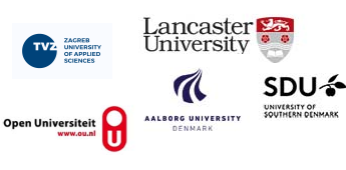

Increasing Teacher Engagement in Learning Platforms through Future Workshops
Lone Dirckinck-Holmfeld
Department of Communication and PsychologyAalborg University, Copenhagen, Denmark.
Keywords
learning platform, future workshop, teacher's engagement and ownership, implementation and meaning
Abstract
In 2014, the Government and the Municipal Association agreed to realize the initiative on a learning platform for primary schools. The agreement originates from the elementary school reform and aims to support the elementary school reform (adopted in 2013) through concrete digital initiatives.
The user portal initiative means that all municipalities will acquire two digital solutions for schools by the end of 2017: A collaboration platform and a learning platform (Municipal Association, no year). As a result of this statutory work, all municipalities have purchased a learning platform that is being used in schools.
This paper is based on a large-scale research and development project, Use of Digital Learning Platforms and Learning Materials (Danish: Anvendelse af læringsplatforme og læremidler) (Misfeldt, n.d.) initiated by The National Agency for IT and Learning (STIL) in Denmark. The paper addresses issues arising from one case study at one of the 15 schools participating in the larger-scale study. The case school is using the learning platform “MinUddannelse” (MU) and it has been used for approximately one year before the intervention research took place.
The paper explores a methodical approach combining future workshops, activity systems analysis, and learning experiments based on work with one of the 15 schools, which participated in the larger-scale study. The study documents, that this specific combination of approaches, which are new to the PD community, provides ownership and creates meaning among the participants to the implementation process. Further, the findings support, that the meaning of using the platform is not given or determined, however is a negotiated enterprise under development in interaction with the plasticity of the platform, how the platform, principles and practices are combined by the teacher professionals and the implementation process. The platform has built-in design principles and pedagogical values, and as such the materiality of the platforms affords certain practices. However, the future workshop, the ASA analysis, and the design experiments also documented that the meaning construction is shaped under use (and no use). A critical and constructive appropriation of the learning platform is therefor strongly linked to participatory implementation methods, where teachers are giving voice in exploring and experimenting with the learning platform into their professional practices.
Joint Organising Institutions
Open University of The Netherlands
| Past Conference Proceedings | Contact |